Frank Anderson – Treating Trauma Clients at the Edge: How Brain Science Can Inform Interventions
$119.00 Original price was: $119.00.$44.00Current price is: $44.00.
Digital Download: You will receive a download link via your order email
Should you have any questions, please contact us: [email protected]
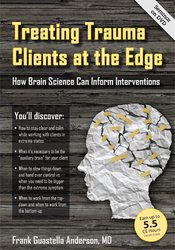 Frank Anderson – Treating Trauma Clients at the Edge: How Brain Science Can Inform Interventions
Frank Anderson – Treating Trauma Clients at the Edge: How Brain Science Can Inform Interventions
Description
Therapists often get shaken and lose confidence in their approach when a client’s trauma response edges into seemingly uncontrollable extremes of rage, panic, or suicidal desperation. This workshop provides an essential road map for treating difficult trauma cases through a detailed exploration of the neurobiological processes of hyperarousal and parasympathetic withdrawal underlying extreme symptoms. You’ll discover:
- How to stay clear and calm while working with clients in extreme states
- When it’s necessary to be the “auxiliary brain” for your client
- When to slow things down and hand over control vs. when you need to be bigger than the extreme symptom
- When to work from the top-down and when to work from the bottom-up
Handouts/Brochure
Slides – Treating Trauma Clients at the Edge: How Brain Science Can Inform Interventions (0.71 MB) 11 Pages Available after Purchase
Outline
- Experiential Treatments – Integrating neuroscience and psychotherapy
- Necessity of utilizing physical, emotional and relationship aspects in therapeutic intervention
- Problems with traditional phase oriented treatment
- Negative evaluation of symptoms – ignoring their protective function
- Internal Family Systems
- Understanding symptom presentation as positive efforts pushed to extremes
- Welcoming and integrating all parts of an individual
- Identifying intent of symptomology, importance of avoiding shaming
- Redefining trauma related diagnoses and integrating overactive protective mechanisms
- Disorganized attachment
- Borderline Personality Disorder, Dissociative Identity Disorder
- Therapist factors – vulnerabilities
- Impact of therapist parts acting as separately as the clients we work with
- Responding effectively to personal triggers
- Symptoms of post trauma
- Hyperarousal, hyperarousal, psychic wounds
- Importance of obtaining permission before addressing psychic wounds
- Experiential exercise – self-awareness, response to triggers
- Mind-brain relationships
- Neuroplasticity, neural integration
- Neural networks associated with trauma
- Implicit nature of trauma memories
- Autonomic nervous system
- Role of cortisol
- Sympathetic hyper-arousal
- Characteristics of extreme symptom activation and mixed states
- Therapeutic responses
- Choosing compassion or empathic responses
- Providing auxiliary cognition
- Strategies to avoid contributing to hyperarousal
- Top down strategies to separate or unblend
- Case presentation – example of permission seeking, direct access and unblending
- Polyvagal Theory
- Dorsal and ventral branches
- Activating strategies, responding to hypo-arousal, blunting
Speaker
Frank Anderson, MD
Frank Anderson, MD, completed his residency and was a clinical instructor in psychiatry at Harvard Medical School. He is both a psychiatrist and psychotherapist. He specializes in the treatment of trauma and dissociation and is passionate about teaching brain-based psychotherapy and integrating current neuroscience knowledge with the IFS model of therapy.
Dr. Anderson is a Lead Trainer at the IFS Institute with Richard Schwartz and maintains a long affiliation with, and trains for, Bessel van der Kolk’s Trauma Center. He serves as an advisor to the International Association of Trauma Professionals (IATP) and was the former chair and director of the Foundation for Self-Leadership.
Dr. Anderson has lectured extensively on the Neurobiology of PTSD and Dissociation and wrote the chapter “Who’s Taking What” Connecting Neuroscience, Psychopharmacology and Internal Family Systems for Trauma in Internal Family Systems Therapy – New Dimensions. He co-authored a chapter on What IFS Brings to Trauma Treatment in Innovations and Elaborations in Internal Family Systems Therapy, and recently co-authored Internal Family Systems Skills Training Manual.
His most recent book, entitled Transcending Trauma: Healing Complex PTSD with Internal Family Systems was released on May 19, 2021.
Dr. Anderson maintains a private practice in Concord, MA.
www.FrankAndersonMD.com
Speaker Disclosures:
Financial: Dr. Frank Anderson maintains a private practice. He is the executive director of the Foundation for Self Leadership and has employment relationships with The Trauma Center and The Center for Self Leadership. Dr. Anderson receives royalties as a published author. He receives a speaking honorarium, recording, and book royalties from PESI, Inc. He has no relevant financial relationships with ineligible organizations.
Non-financial: Dr. Frank Anderson is a member of the New England Society Studying Trauma and Dissociation and the International Society for the Study of Trauma and Dissociation.
Salepage: https://catalog.pesi.com/item/23153/
Archive: https://archive.fo/wip/QUegt
Delivery Method
– After your purchase, you’ll see a View your orders link which goes to the Downloads page. Here, you can download all the files associated with your order.
– Downloads are available once your payment is confirmed, we’ll also send you a download notification email separate from any transaction notification emails you receive from imcourse.digital.
– Since it is a digital copy, our suggestion is to download and save it to your hard drive. In case the link is broken for any reason, please contact us and we will resend the new download link.
– If you cannot find the download link, please don’t worry about that. We will update and notify you as soon as possible at 8:00 AM – 8:00 PM (UTC+8).
Thank You For Shopping With Us!
Be the first to review “Frank Anderson – Treating Trauma Clients at the Edge: How Brain Science Can Inform Interventions” Cancel reply
Related Products
Medical & Health
Frank Anderson – IFS and Parenting: Help Kids Transition Forward to a Calm Centered Place
Medical & Health
Frank Anderson – A Therapist’s Guide to the Psychopharmacology of Trauma and Dissociation
Medical & Health
Medical & Health
Medical & Health
Medical & Health
Frank Anderson – Internal Family Systems Therapy (IFS) and Parenting
Medical & Health



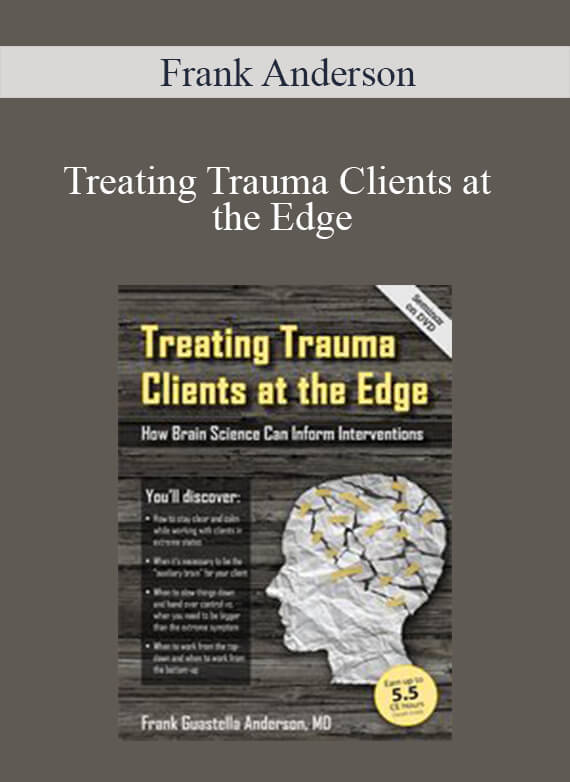

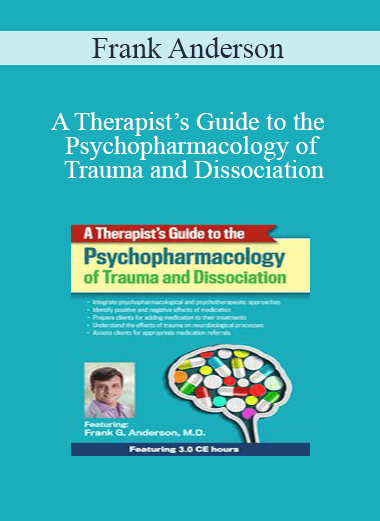
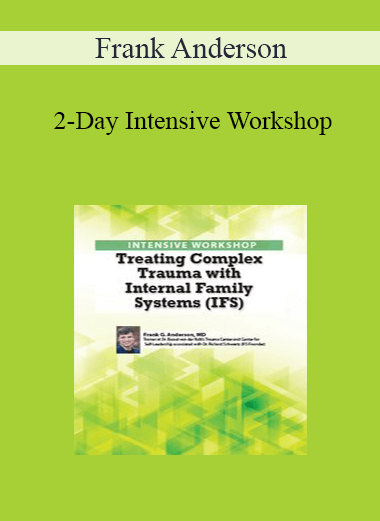
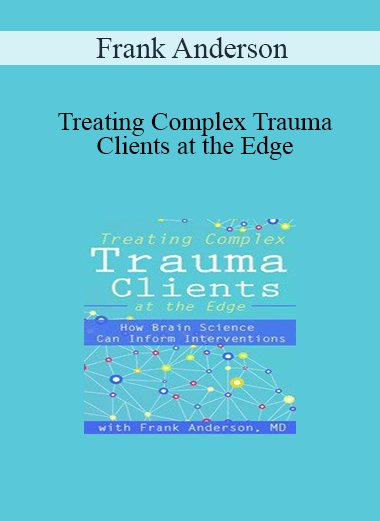
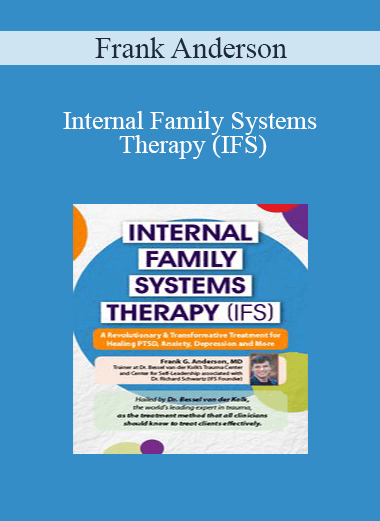
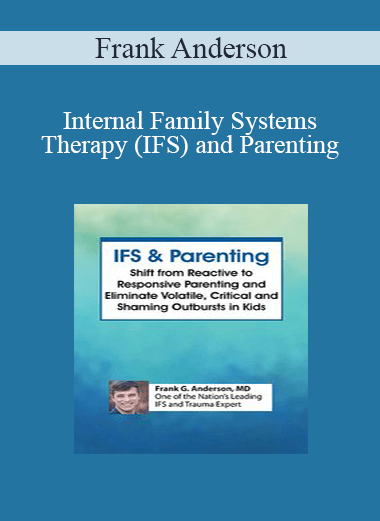
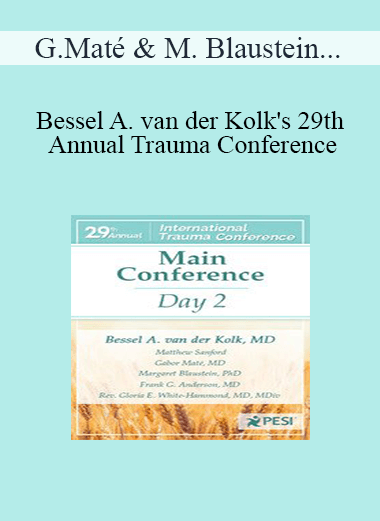
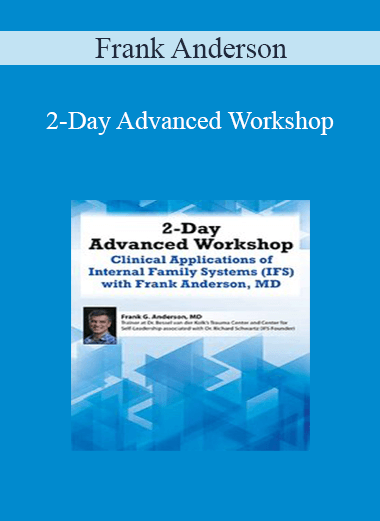
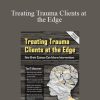
Reviews
There are no reviews yet.